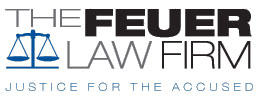 South Florida Property and Theft Defense Attorney
South Florida Property and Theft Defense Attorney
Property and Theft Crimes can have many forms, including car theft, arson, bank fraud, burglary, larceny, buying, receiving and possession of stolen property, shoplifting, criminal trespass, counterfeiting, destruction of property, embezzlement, credit card fraud, theft by deception, forgery, employee theft, and identify theft.
Penalties for property crimes vary (misdemeanors, felonies) depending on the value of the stolen property and factors like prior offenses, weapons used, etc. Punishment ranges from probation with community service, restitution, to jail and prison. Theft convictions can also impact employment, driver’s licenses and loan eligibility.
Some of the types of Property & Theft cases that our firm handles includes, but is not limited to:
- Burglary
Burglary includes entering into or remaining in a home (dwelling), business, structure, boat, trailer, building (warehouse) or conveyance with the intention of stealing property or committing an additional crime or felony. Burglary is often paired with theft charges and can escalate to include Assault & Battery Crimes. - Dealing in Stolen Property
Dealing in stolen property, also known as fencing, involves the buying, selling or trafficking of property that he or she knows, or reasonably should know was stolen. - Robbery
Robbery normally refers to the act of taking property away from another person (or from his/her immediate possession) against his/her will and by the use of force or the threat of force. Robberies often include weapons (guns, knives, etc.). - Theft (Petit, Retail, Grand)
Theft includes petit theft which is the act of taking something from someone unlawfully with the intent to temporarily or permanently deprive the other person of the property, retail theft/shoplifting which is the act of taking something from a retail store unlawfully with the intent to temporarily or permanently deprive the store of the property, or grand theft – the act of taking something from someone unlawfully with the intent to temporarily or permanently deprive the other person of the property valued at $300 or above. This includes grand theft 3rd degree (includes stolen property valued between $300-$19,000), 2nd degree (valued $30,000 – $99,000) and 1st degree (valued $100,000 or greater).
